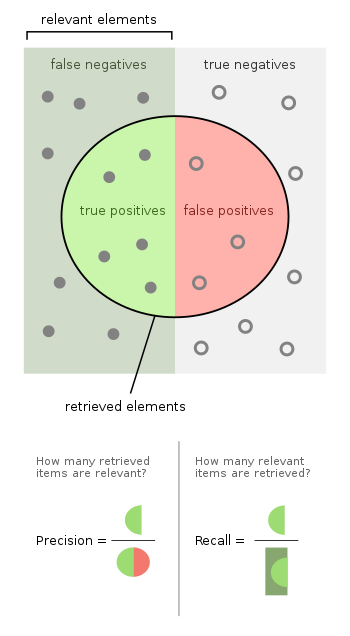
Work habits are changing quite a bit now in jobs. Many people really like flexibility in their work location. Companies want workers back inside the regular office though. This makes big tension show up across industries. It impacts most workers who liked full remote work a lot. They felt better and found they was much more productive. Stories show personal and money trouble for folks returning after finding work freedom at home.
Consider Dennis C who makes his home in Alabama. He is a gentleman roughly 65 year old. For a long time he held a very good job making plenty money. He enjoyed this six-figure role so much indeed. Retiring from it never crossed his mind really. His employer began offering some remote days back in 2018. By 2019 this went up to two days every week. Dennis said this hybrid setup felt totally fantastic.
Then 2020 hit, everything went remote fully. Dennis, like many others, found this shift brought new job satisfaction. He quickly found that two days remote was nice. But five days felt like the real sweet spot for him. Concentration was easier without office noise and interruptions. He also spent much less time sitting in meetings. This let him work smarter than he could before. He turned off his camera or just hit mute button easily.

Practical benefits were quite undeniable working from home. His commute used to take a good twenty minutes maybe. Now it was just five minutes, that is all. Saving time, energy, and cash is a strong remote work argument. It gave him more freedom how his day went. If he wanted to do something, he did it. Work picked up later that night instead. Managing his time flexibly was possible. He integrated personal stuff into the day easily. Many found this living and working way very freeing overall.
This newfound flexibility speaks strong to many people. It helps create a lifestyle like college kids once had. Afternoon hours can be used for errands or maybe just relaxing some. They can do this knowing work is catch up on later. Dennis put it perfect for everyone. The more choice people gets, he thinks, the more happier we seem to be. This desire for control over time drives remote work preference.
The tide began to turn for Dennis some time. In April 2021 his company asked for him returning. They wanted him back in the office three days each week. Dennis already could retire technically from his job. He was exploring other job opportunities out there. This new mandate felt like final push he needed badly. It seemed like a big step back from his good work-life balance. The decision was made clear and quick indeed. When they told him he had to come back he sent an email. It just said he was retiring from his job.

Dennis could do this as he had a safety net setup already. He secured a job offer as defense contractor somewhere else. This new role meant slightly less pay actually. His six-figure salary would not be matched fully. But the new contractor job was fully remote always. This was a requirement he could not compromise on. When adding his old federal retirement benefits his income went up. His experience in this new fully remote role he called fantastic.
Dennis his story isn’t the only one happening. Similar situations play out all over the country. This shows the big stakes in the return-to-office pushing. Think on David Paul Crouch for instance. He is a software engineer 41 year old. Grindr hired him in 2022 specifically remote role. He lived near Dallas while Chicago office was far off. His work was going well doing web versions of Grindr app. Life was not just his job though for David. He was primary caretaker for his mom after stroke.
Moving to Chicago was really not possible at all. His family responsibilities made this unviable completely. The mandate came during one regular all-hands meeting call. All software engineers were required back in person now. They must come to the Chicago office location. For Crouch this news was absolutely devastating for him. He worked at many different places over his career path. He wanted stability and pride there he felt. He thought he found it and everything went great then. This return order felt like a torpedo hitting his boat hard. Faced with an impossible choice he had to make. Job or taking care of his mother. Crouch made the difficult but needed decision to quit.

Willingness to leave a job over remote work is not just a story. Data supports this happening quite a bit. A Bankrate Survey from August 2023 showed something. Forty-two percent of US workers favoring fully remote work said this. They would change their industry, job, or company. This was just to keep working remotely from anywhere. This shows deep commitment to remote options. Plus 37 percent favoring hybrid roles or four-day week said same. They would make big career changes for flexibility too.
Return-to-office orders are more than just a scenery change. They make a real big challenge for workers who have specific lives. Individuals with lower income levels face this often. Parents having children in local school face it too. Folks with ongoing medical needs or caregiving duties also. A mandate back to office can force awful choices. They must uproot everything costing lots of money. Or they could simply lose their job entirely. Impact goes far beyond just what people prefer. It touches things like accessibility and fairness and work-life blending.
Companies sometimes feel stronger about changing benefits now. This happens when the job market looks less good for employees. Fewer job openings can make employers dictate terms maybe. Remote work could be seen as one of perks to be trimmed. Sarah Foster, Bankrate Reporter, noticed this clearly. Job postings in remote-friendly industries decrease fastest she notes. Listings mentioning remote work are also less common now. But she also says this moment is unique. We lived through recession and growth period recently. Many Americans tasted working free she says. Remote work might not turn off easily like a light. Preferences could be change irrevocably for many workers. And this will shape how they view careers.

Data clearly shows big support for remote work here. An August 2023 Bankrate Survey found things. A majority, 64 percent US workers, support fully remote way. Only 14 percent were totally opposed to this idea. Twenty-two percent said they had no preference really. This support is even stronger with women workers. Seventy percent of women support full remote schedules. This compares to 59 percent of men workers. Baby Boomers show least support among generations there. But still half this generation favor remote jobs. Support higher for Gen Z workers at 68 percent. Millennials also like it a lot with 69 percent support. Gen X shows 62 percent support levels. It shows many different ages want flexibility.
Younger generations especially show willingness to give things up for remote. The Bankrate survey from lately revealed this finding. Eighty-three percent millennial workers and 81 percent Gen Z too. They support a full remote schedule very much. These groups would sacrifice something significant for it. Maybe taking a pay cut is okay for them. Or working during off-peak hours sometime. Changing job or industry completely was an option. While lower, 76 percent Gen X and 58 percent Baby Boomers would sacrifice. This highlights how much different ages value remote working situations.
Beyond freedom and time control, returning costs money. Tangible financial costs come with being in the office again. Remote workers avoided many of these expenses overall. These costs once were common now they add up loads. They mean bigger spending out of pockets for people. Americans now spend a lot more on office expenses. This was compared to before the pandemic started actually. Data shows average household spending on these costs higher. It was higher in 2022 than it was back in 2019 before everything.
Related posts:
A baby boomer who quit his 6-figure job rather than return to the office says managers are threatened by remote work and just want people back so they can see them working
A baby boomer who quit his 6-figure job rather than return to the office says managers are threatened by remote work and just want people back so they can see them working
The Boomerang Boomers – Is Returning to Work the Right Move?




